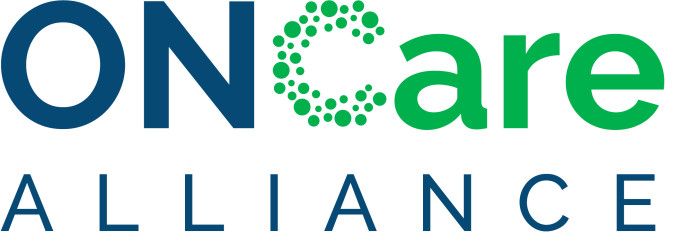
- December 2020
- Volume 26
- Issue 10
Moving Beyond Precision Oncology to “Precision Prevention” in Oncology Practices

In a pair of sessions at the Quality Cancer Care Alliance Virtual Fall Leadership Summit, speakers discussed the promise of precision medicine for not only informing individuals’ cancer treatment decisions but also identifying individuals at high risk before disease develops.
In a pair of sessions at the Quality Cancer Care Alliance Virtual Fall Leadership Summit, speakers discussed the promise of
Keynote speaker Michael Snyder, PhD, professor and chair of genetics at the Stanford University School of Medicine and director of the Stanford Center for Genomics and Personalized Medicine, kicked off his talk by arguing that we are not providing individual-based precision medicine to the fullest possible extent. Using temperature as an example, he said that we should get to know individuals’ personal baselines, rather than using population-based averages, to detect disease at its earliest moments.
Snyder also spoke of the importance of accounting for time of the year when evaluating patients’ biomarker measurements; for instance, the gut and nasal microbiomes fluctuate throughout the year, meaning that a result might be more or less concerning depending on the season in which it was measured.
Together with colleagues, Snyder is conducting a study that collects longitudinal measurements of 43 participants to group them into 4 aging types, with clinical markers associated with each. The next step is to scale the project up to many more participants in partnership with the company Q.Bio. Another important step, according to Snyder, is to harness the power of wearable trackers to seamlessly measure and collect health data and send it to individuals’ smartphones.
“We think your smartphone is going to be one of the most important health monitors for the future,” Snyder explained.
Another potential application of wearables is in the coronavirus disease 2019 (COVID-19) pandemic, as Snyder and his fellow investigators noticed that increased resting heart rate may be a predictor of infection even before symptoms set in. They plan to roll out the second part of that study to millions of people later this month.
Panning back out to the broader picture, Snyder spoke about the personal health dashboard that will allow patients to visualize their own health data on their smartphones at the daily, weekly, monthly, or yearly level. These data can also be shared with physicians remotely, he said, “so we can pull out information and better follow people’s health at a much more comprehensive level than we currently do.”
Following Snyder’s talk, a panel of experts discussed the precision medicine developments that are making their way into community oncology practices. Moderator Michael Korn, MD, chief medical officer of Caris Life Sciences, introduced the panel with a vignette of his company’s efforts to build a molecular database of 260,000 patients’ comprehensive tumor profiles and a matched database of 215,000 clinical outcomes, in hopes of identifying molecular features that could drive diagnoses and treatment decisions.
Panelist Tony Blau, professor of hematology at the University of Washington, spoke of how in his own experience as a patient with multiple myeloma, he had many different treatment options over the course of his treatment, but he “had very little information upon which to base a rational decision, no way of knowing which treatment was best for me.” He most wanted to know the treatments and outcomes of every other patient with myeloma, which inspired him to found All4Cure, a company that compiles patients’ cancer history and allows them to compare themselves with other patients.
However, the knowledge gleaned from these efforts won’t save lives if patients are unable to enroll in the clinical trials that may make a difference in treating their disease, explained panelist Edward S. Kim, MD, chair of the Department of Solid Tumor Oncology and Investigational Therapeutics at the Levine Cancer Institute. He argued that the eligibility criteria for many oncology trials are too numerous and restrictive, and that the process of enrolling in a clinical trial is often too convoluted.
At Levine Cancer Institute, his team created the EAPathways system to empower doctors to easily see if a clinical trial may be applicable to their patients and directly send a message to the study coordinator from within the platform. Their efforts have been successful in making clinical trial enrollment more demographically representative of their patient population, Kim explained. He called for greater ability to “facilitate our physicians in enrolling patients, as well as giving them tools and then simplifying these protocols so they can be more inclusive.”
Next, Funmi Olopade, MD, professor of medicine and human genetics and director of the Center for Clinical Cancer Genetics and Global Health at the University of Chicago, spoke of her work with her daughter to found the CancerIQ software company to democratize access to the tools needed to provide genetic counseling. She works with genetic testing companies to send kits directly to patients to identify any genetic mutations, then the patients can be referred to genetic counselors if they need additional counseling.
The field of precision oncology is moving beyond detection of genes like BRCA 1/2 into the future of next-generation sequencing and the use of population databases to train artificial intelligence to perform risk prediction, Olopade explained. Whereas genomic testing is now performed to inform the use of targeted therapies for patients, the future will include testing to identify high-risk patients.
“We all really have to begin to think about precision prevention, because when you do that targeted therapy for precision oncology, they have family members, and I’m hoping that community oncologists will begin to see how they can incorporate this into their practices,” Olopade concluded.
Articles in this issue
about 5 years ago
10-Year BRCA Testing Decreases, Study Showsabout 5 years ago
How Halting Telehealth Waivers May Impact Cost, Deferral in CareNewsletter
Stay ahead of policy, cost, and value—subscribe to AJMC for expert insights at the intersection of clinical care and health economics.









